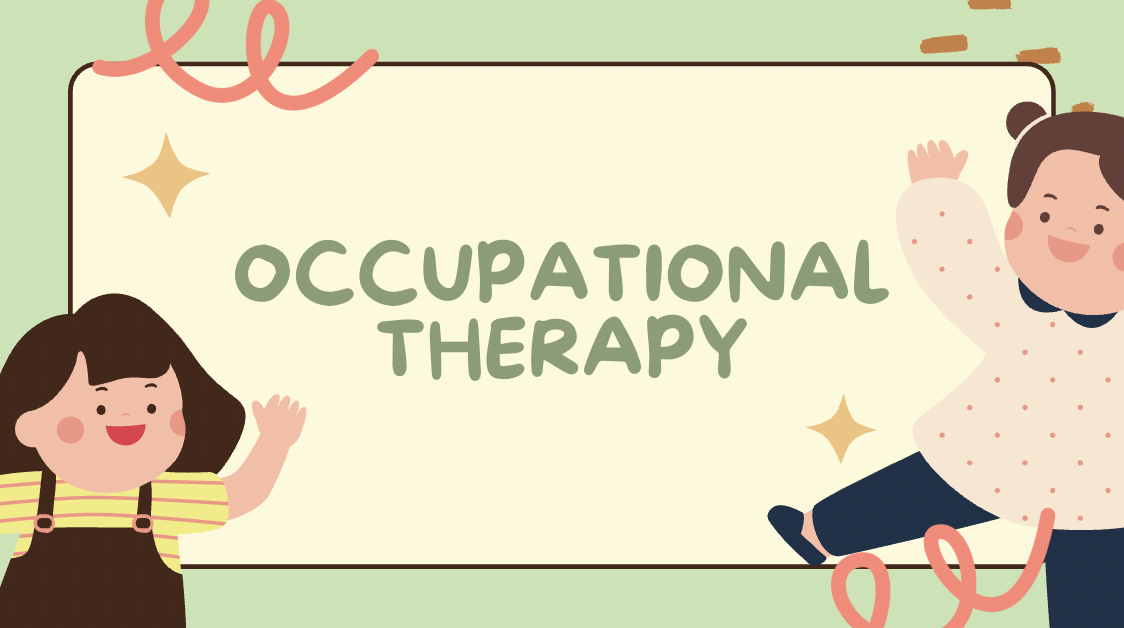
“Occupational therapy practitioners ask ‘What matters to you?” not, “What’s the matter with you?” - Virginia Stoffel
Occupational therapy is a rehabilitative service that focuses on promoting functional skills (e.g., self care, reflex integration, fine motor skills, motor planning and coordination, etc.) and independence in activities of daily living (ADLs) and other meaningful activities (occupations) across the lifespan through various evidence-based practices.
What is an occupation in relation to OT?
An occupation is any meaningful activity that you choose to occupy your time with. A child’s main occupation is play. It is important to understand that a child’s occupation of play is facilitated to achieve various developmental skills such as motor skills (fine and gross), sensory processing (dependent on their type), and functional daily skills to increase independence.
What is the difference between ADLs and IADLs?
Activities of Daily Living (ADLs) are basic, daily self-care activities that an individual engages in such as feeding, dressing, showering, hair care, oral care management, and toileting management. These tasks promote well-being and functional independence.
Instrumental Activities of Daily Living (IADLs) are complex activities that are essential for independent living such as cooking, cleaning, grocery shopping, financial management, medication management and more.
-
Occupational therapists work with all ages (across the lifespan) from birth to old age.
Occupational therapists serve the neurodivergent population, populations with neuro challenges (e.g., brain injuries, stroke, etc.), orthopedic populations, burn populations, and more.
-
Occupational therapists work in a variety of settings including: school systems, home health, inpatient, acute care, skilled nursing facilities (SNFs), outpatient, mental health, community settings, and more.
-
Occupational therapists facilitate and promote fine motor skills (strength, endurance, coordination), sensory processing and integration, visual-motor and visual-perceptual skills, social-emotional skills, activities of daily living (ADLs) advocacy, and more.
-
Occupational therapists administer a variety of assessments to evaluate a child’s skills. However, some assessments administered for an Autistic child specifically may include the following:
Ages and Stages Questionnaire (ASQ)
Assesses the child’s developmental progress and identifies their specific needs.
Click here to view this questionnaire from 2 months to 54 months for your child.
Sensory Profile II (SP-2)
Assesses the child’s type of sensory processing and identifies their specific sensory needs.
Pediatric Evaluation of Disability Inventory (PEDI)
Assesses a child’s functional capabilities.
PEDI-Eat
Assesses a child’s specific needs related to feeding.
Autism Treatment Evaluation Checklist (ATEC)
Questionnaire for parents with ratings in specific areas.
Click here to view this questionnaire.
Autistic children experience challenges with some of the skills listed above. Occupational Therapy services can support Autistic children in building a strong foundation to further develop the skills needed for their daily activities throughout the span of their life.
Specialized OT Approaches to Support Your Autistic Child
In addition to learning of fine and gross motor skills, sensory processing, and daily life skills (ADLs and IADLs) through the facilitation of play, there are also specialized OT approaches that may be used to support your child. Specialized OT approaches may include the following below:
DIR Floortime
-
DIR Floortime stands for Developmental, Individual-Differences, Relationship-based Floortime, which is a child-centered and play-based therapeutic approach for children with developmental delays.
It is an approach widely known to support Autistic children.
-
DIR Floortime is play-based and more importantly relationship-based, and ensures to meet the child where they are at. The child is essentially leading the play and the practitioner follows their lead throughout.
To learn more about DIR Floortime, click here to visit their official website.
SOS Feeding
-
SOS stands for Sequential-Oral-Sensory, and is a sensory-based and play-based feeding approach for children who experience challenges with feeding due to a variety of reasons (e.g., textures, sensory/tactile aversiveness, and more).
-
The SOS Feeding approach ensures to highlight and focus on a child and family’s strengths, uses intrinsic motivation to support feeding skills, incorporates a play-with-a-purpose approach, and more to support children.
Many Autistic children experience feeding challenges. SOS Feeding is a slow, and gradual approach that can better support your child as it uses a gradual exposure hierarchy and food chaining.
To dive deeper into the SOS Feeding approach, click here to visit their official website.



